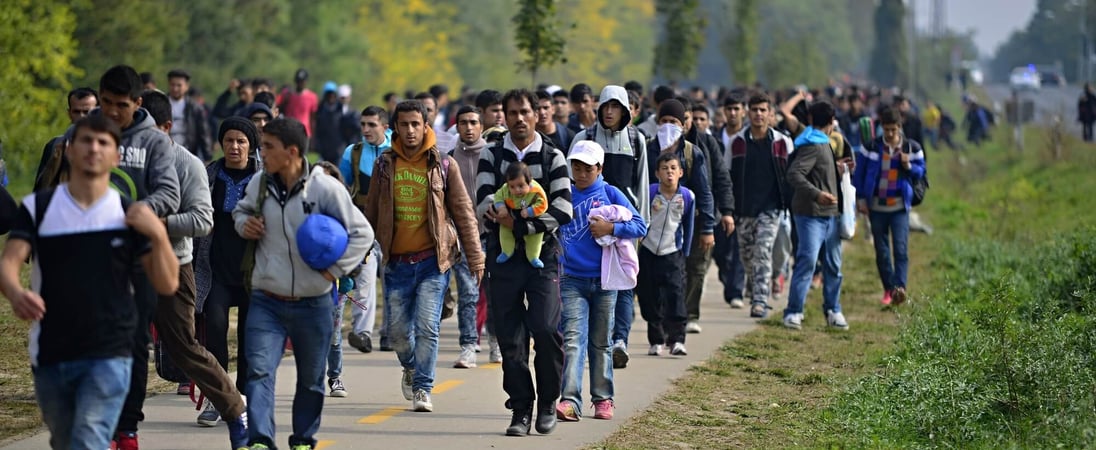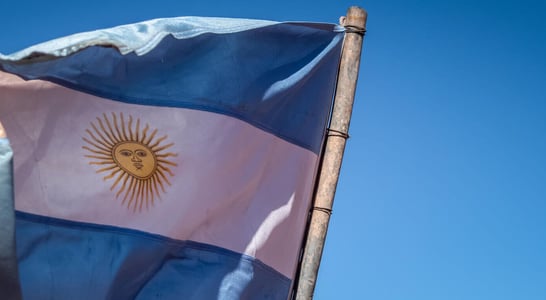
World Refugee Day
Educate yourself and others about the plights of refugees around the world, and foster empathy and care for those who need our help in these times.
Can you imagine what it would be like to have to leave your home, your community, your country and flee to another?
Can you picture the challenges you would face and the sense of loss you would feel? Well, every minute 20 people undergo this harrowing experience and become refugees. Perhaps you are even a refugee yourself or know of displaced people living in your community.
In a world where violence, persecution and war force thousands of people to flee each day, it’s important that we all come together in support of refugees, and what better way than on World Refugee Day?
This special occasion aims to raise awareness of and empathy for what displaced people go through, as well as celebrate refugees all over the world.
How to Celebrate World Refugee Day
This special occasion is all about celebrating refugees, recognizing the various challenges and hardships they face and showing admiration and gratitude for their strength and courage.
One of the best ways to mark this day is therefore to educate yourself on the refugee experience and learn more about what displaced people go through. Walk a mile in a refugee’s shoes and you’ll easily feel increased empathy for their plight.
There are plenty of incredibly moving books, both fiction and non-fiction, that provide intimate insight into what it means to be a refugee: from Malala Yousafzai’s We Are Displaced, which details her own story of escaping the Taliban in Pakistan as well as that of nine other refugees, to Khaled Hosseini’s The Kite Runner, a novel about an Afghan refugee inspired by Hosseini’s own refugee status; from The Crossing by Samar Yazbek, which covers the Syrian war, to Teacup by Rebecca Young, a children’s book about a refugee boy.
There are also many documentaries you can watch, for example the moving film For Sama, which follows a couple and their baby daughter living through the Syrian war, and the intimate documentary Manus, which captures the experiences of refugees on Manus Island.
In celebration of World Refugee Day, communities, organizations, government bodies, schools and other groups all over the world host a wide range events, many of which are led by displaced people.
Check out what’s going on in your local area – activities can include conferences, film screenings, fundraising events and much more. And if you’re able, you could even consider hosting your own event to help raise awareness in your community.
Another great way to honor World Refugee Day is to donate to a non-profit organization working to support refugees, asylum seekers and internally displaced people.
You can contribute to the efforts of the UNHCR itself or raise funds for other charities such as Action Aid, Red Cross, Help Refugees and International Rescue Committee.
World Refugee Day is a chance to make a real difference to the lives and experiences of refugees all over the world, so get involved, spread the word on social media and honor these amazing people living through the most challenging of circumstances.
History of World Refugee Day
The concept of seeking refuge, often in a holy place, dates as far back as Ancient Egypt, but international efforts to protect refugees only began in the early 20th century when the High Commission for Refugees was founded by the League of Nations in 1921.
While the Commission was originally intended to help people escaping the Russian Revolution, over time it came to care for refugees from various other countries as well.
In 1950 the United Nations High Commissioner for Refugees (UNHCR) was set up in Switzerland – it’s the main organization responsible for supporting and safeguarding refugees to this day.
Only those Palestinian refugees who fled the 1948 war with Israel are cared for by another body, the United Nations Relief and Works Agency (UNRWA).
Over the course of the past century, people have fled terror and oppression all over the world, from places such as Armenia and Germany, Spain and Turkey.
In recent decades, many refugees have come from countries such as Afghanistan, Somalia, South Sudan and Syria, with Turkey, Pakistan, Lebanon and Iran hosting the most refugees.
There are currently around 70 million displaced people across the globe, which equates to just under 1 in every 100 people. Sadly, over half of these are children, many of whom are alone and separated from their families.
World Refugee Day was founded by the UN General Assembly on 4 December 2000 to commemorate the 50th anniversary of the 1951 Convention Relating to the Status of Refugees. The Convention established various rights for refugees, including the right to work, the right to education and the right to travel.
20 June was picked in order to coincide with the already established Africa Refugee Day, which was organized by the Organization of African Unity (OAU) and celebrated on this date prior to 2001.
Each year has a different theme such as hope, perseverance, tolerance and respect, and the occasion is marked via a whole host of events in over 100 countries. The day aims to raise awareness of and take action in support of the plight of refugees, as well as honor their bravery and perseverance.
What it means to be a refugee
While there is no one definition for the term ‘refugee’, it generally means someone who has had to leave their home and seek refuge in a different country.
Refugees may be escaping from a variety of threats, including war and persecution, and they have the right not to be returned to the place from which they fled, known as the right to non-refoulment.
Until an individual has been granted refugee status, either by their host country or by the UNHCR, they are known as an asylum seeker, and people fleeing their homes but remaining in the same country are called internally displaced persons (IDPs).
The ultimate goal for refugees is to return to their home country once it’s safe for them to do so; however, sadly in many cases this isn’t possible, at least for a number of years. In the meantime, the aim is for refugees to integrate into their host nation, or if needed to be resettled in a different safe country.
The integration process in any new country can be a difficult and lengthy process, with short-term, basic needs such as food and shelter met first, often by way of a refugee camp, and social and cultural integration occurring later, for example once the refugee has a place in the country’s workforce commensurate to their previous career and qualifications.
Refugees can face many challenges even after escaping the situation at home. Refugee camps in particular can be overcrowded and underequipped, often with poor sanitary conditions, disease outbreaks, conflict and violence.
And in wider society refugees may encounter stigma, hostility and xenophobia from other citizens, struggle in education due to language barriers and suffer from various mental health issues such as PTSD, depression and homesickness.
Yet despite these difficulties refugees can also make incredibly valuable contributions to their host country, whether it be the skills and expertise they add to the workforce, the support they give to their local community or the new culture they share with society.
World Refugee Day FAQs
What’s an unusual cultural tradition inspired by refugees?
In Tanzania, refugee communities host storytelling nights where elders share traditional fables from their homelands.
These gatherings preserve culture while building bonds with local Tanzanians. Children from both groups often participate, learning new languages through these tales.
Are there refugee superheroes in pop culture?
Yes! Marvel’s Nightcrawler, a mutant with teleportation powers, is portrayed as a refugee fleeing persecution.
Similarly, DC Comics’ Superman symbolizes the refugee experience, escaping his doomed planet for Earth. These characters highlight resilience in adversity.
How do refugee camps celebrate World Refugee Day?
Refugee camps often hold vibrant celebrations with music, dance, and food.
For example, in Kenya’s Kakuma camp, refugees showcase cultural dances, while local artists collaborate on mural paintings, blending their heritage with their host nation’s.
What are some quirky misconceptions about refugees?
One strange myth is that refugees often have hidden wealth. In reality, most flee with only essentials. Another misconception is that refugees always intend to stay permanently, while many hope to return home someday.
Are there any famous refugees in sports?
Yes, many world-class athletes were refugees. Yusra Mardini, a Syrian refugee, competed in swimming at the Olympics after saving lives by pulling a dinghy to safety.
Her story inspired global admiration and a Netflix film.
What historical event prompted global refugee protection?
The horrors of World War II, especially the displacement of millions in Europe, spurred the 1951 Refugee Convention. It became the cornerstone for modern refugee rights, ensuring those fleeing danger would find protection.
How does World Refugee Day inspire art projects?
In Berlin, artists create installations using salvaged refugee boats. These haunting sculptures remind viewers of the dangerous journeys refugees endure.
Poetry workshops and theater performances often accompany these displays.
Do refugees influence global cuisine?
Absolutely. Refugees introduce rich culinary traditions. For instance, Syrian refugees popularized dishes like kibbeh and fattoush in Europe.
In Canada, Afghan refugees have made mantu, a spiced dumpling, a beloved street food.
What is the Refugee Olympic Team?
First introduced in 2016, this team allows refugees to compete in the Olympics without representing a nation. It symbolizes hope, resilience, and the unifying power of sports.
How has technology helped refugees on World Refugee Day?
Digital tools like the Kiron platform provide refugees with free online education, and mobile apps help them locate legal aid and community centers.
On World Refugee Day, tech companies often highlight these innovations to garner support.
Also on ...
View all holidaysNational Vanilla Milkshake Day
On a hot day, nothing hits the spot quite like a creamy, refreshing Vanilla Milkshake. Make one at home, or visit a restaurant or ice cream place.
World Martini Day
Gin and vermouth, shaken not stirred…and garnished with olives. The classic and iconic Martini had been a favorite of everyone from James Bond to Ernest Hemingway.
World Productivity Day
Nip procrastination in the bud and focus on how you can maximize your productivity, decrease wasted time, and make more time in your life for things you love.
We think you may also like...
National Unclaimed Property Day
Hidden funds, forgotten by many, await discovery—a financial treasure hunt within bureaucratic labyrinths, yielding unexpected windfalls.







